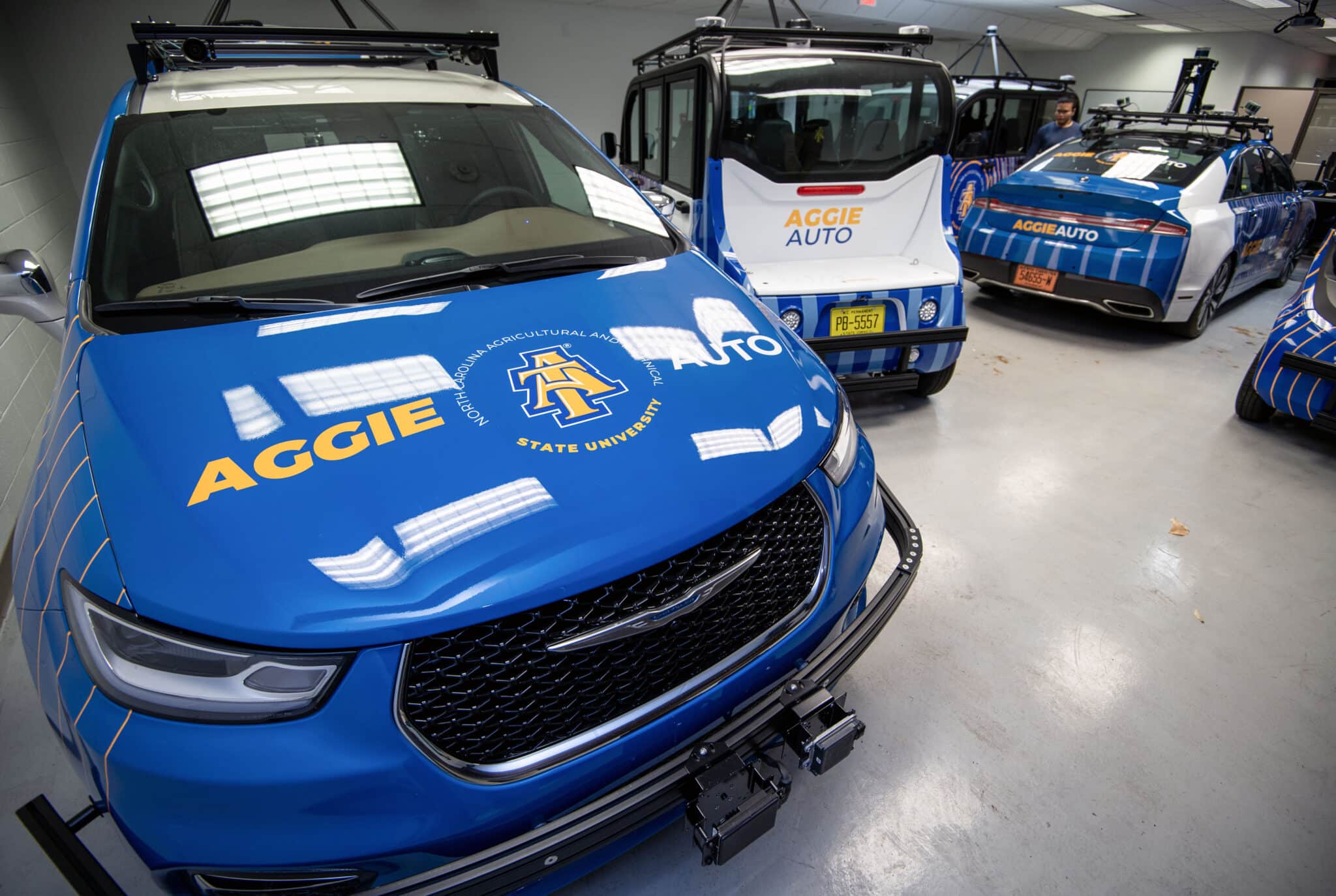Affiliate Disclosure: Automoblog and its partners may earn a commission when you use the services or tools provided on site. These commissions come to us at no additional cost to you. See our Privacy Policy to learn more.
Autonomous vehicles (AVs) have been making headlines recently, and not always for good reasons. But while tech companies face scrutiny and potential legal trouble from the U.S. Department of Justice and others, researchers at North Carolina Agricultural and Technical State University (N.C. A&T) are closer than ever to launching a self-driving shuttle. A dedicated team at one of the country’s most notable historically Black colleges and universities (HBCUs) expects to offer rides to the public before the end of the year.
Automoblog visited the Aggie Auto research lab in Greensboro, North Carolina, to get a firsthand look at the work researchers are doing. When we arrived, we were greeted by several working prototypes along with a few members of the team from N.C. A&T.
That meant we were able to take a ride around the team’s test track to see how autonomous vehicle technology works in a live demonstration. While we usually ask to drive the vehicle in situations like these, that wouldn’t be necessary this time around.
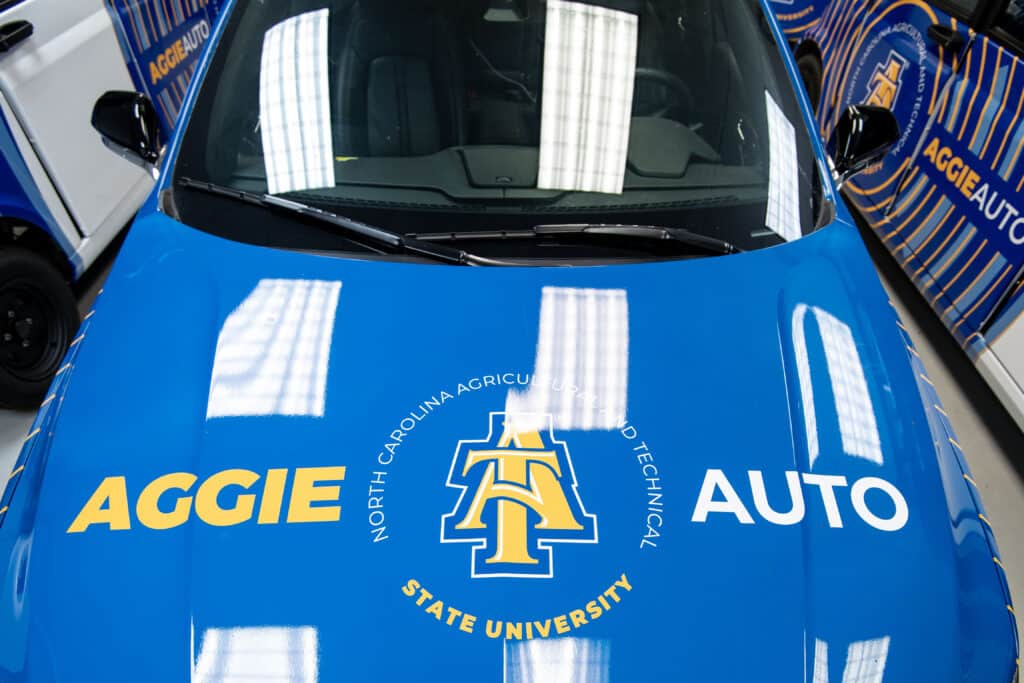
N.C. A&T is a Leading Program in the AV Research Field
Aggie Auto is far from the only program of its type in the U.S., with similar programs existing at many of the nation’s top universities. However, few groups have achieved the level of success and recognition seen by the team at A&T.
SAE International and General Motors selected A&T as one of eight North American universities to participate in its inaugural AutoDrive Challenge™ in 2017. AutoDrive is a multiyear autonomous vehicle development competition in which the goal is for the car to successfully navigate an urban driving course autonomously.
In 2019, Aggie Auto finished first among American universities in the AutoDrive Challenge and second overall. The team has continued to participate since then, competing with teams from universities such as Michigan State, Virginia Tech, and the University of Toronto.
“Students and faculty members from multiple departments and disciplines came together to make this happen,” said Ali Karimoddini, associate professor at N.C. A&T and director of the North Carolina Transportation Center of Excellence on Connected and Autonomous Vehicle Technology (NC-CAV).
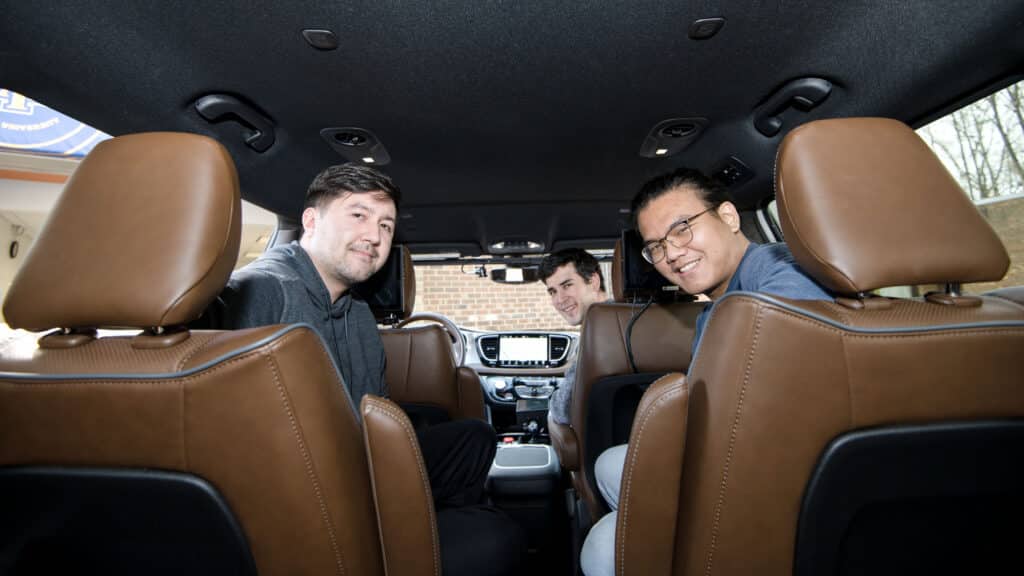
“I am so pleased to see that the team’s hard work paid off,” he continued. “The fact that students demonstrated this level of competence in such an intense competition is ample evidence of their talent and capabilities, and the quality of the research and education infrastructure at N.C. A&T as the only HBCU attending this competition.”
Media Outlets Have Started To Take Note
The success of the Aggie Auto program has started to draw outside recognition. Local media outlets such as WFMY and the Greensboro News & Record have written about the project, as have others in North Carolina’s Piedmont Triad region. However, Aggie Auto has also caught the eye of larger outlets such as NPR and PBS.
Much of that attention came after N.C. A&T researchers gave the public an in-depth look at a working prototype of one of its shuttles. The program held a “Driving Into the Future” event in November 2022 at its Gateway North test track, the first rural AV test track in the nation.
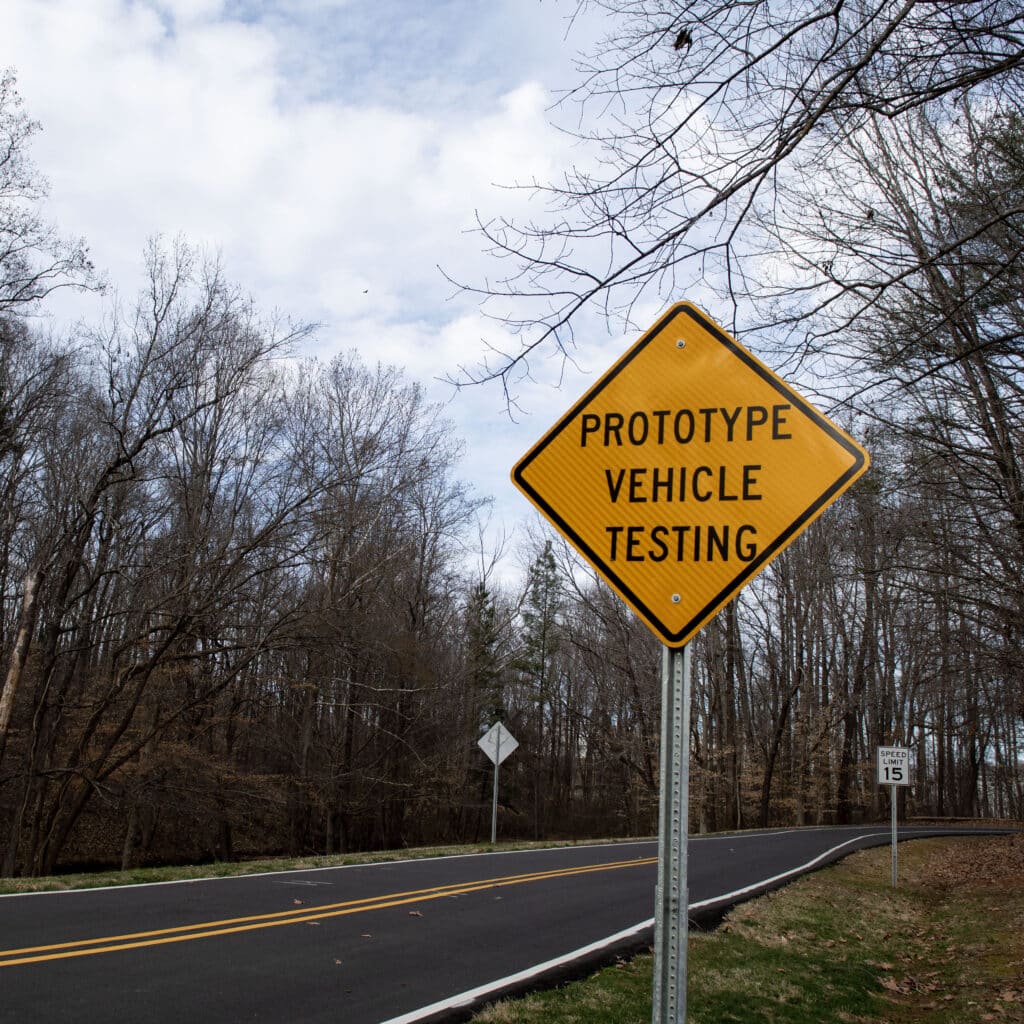
There, journalists were joined by guests such as Federal Highway Administration Deputy Administrator Stephanie Pollack, Greensboro Mayor Nancy Vaughan, and N.C. A&T Chancellor Harold L. Martin Sr. At the event, guests got a chance to ride in the shuttle and learn how it navigates the test course. The shuttle can carry up to five passengers at a time.
Aggie Auto Shuttles Will Serve Public Transportation Needs
For some sectors of the tech and automotive industries, goals based on popularity and profitability are fueling efforts behind autonomous vehicles. The research being performed at N.C. A&T, however, is set to produce vehicles that are meant to serve the public good.
During our tour of the facility and test drive, Daniel Tobias – an autonomous driving software engineer with the program – explained that the team’s research work is fundamentally different from what’s being done at places like Tesla.
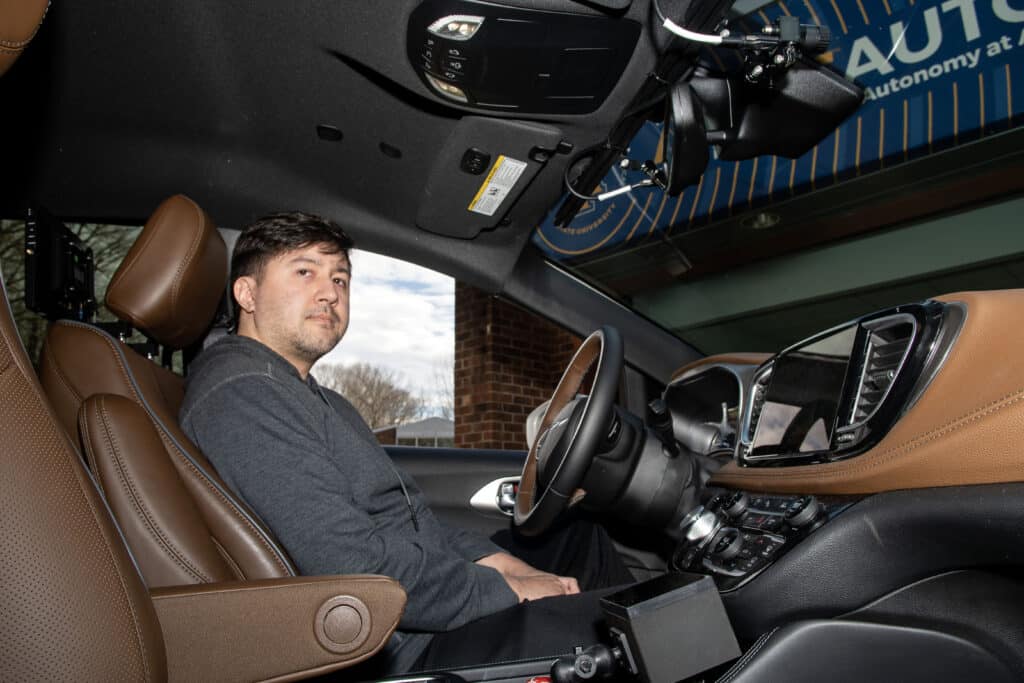
“This is not a for-profit company,” Tobias said. “The focus is more for rural and nonurban situations. We want to see if we can provide some kind of service for them.”
Tobias told us that because the N.C. A&T team is working in the public sector, they’ve gotten support from important sources like the North Carolina Department of Transportation (NCDOT).
“We’re also working with the state very closely to try to flesh out the procedure and how to get these vehicles on the road, because not many companies have done it,” Tobias said. “In addition to a regulatory presence, they’re also acting in a supporting role.”
Automoblog spoke to Jamie Kritzer, deputy director of communications for NCDOT, to learn more about the department’s involvement.
“NCDOT provided funding to the N.C. A&T team through their annual research program to support the vehicles and the test track in a connected autonomous vehicle (CAV) test bed and through pilot deployments,” Kritzer said.
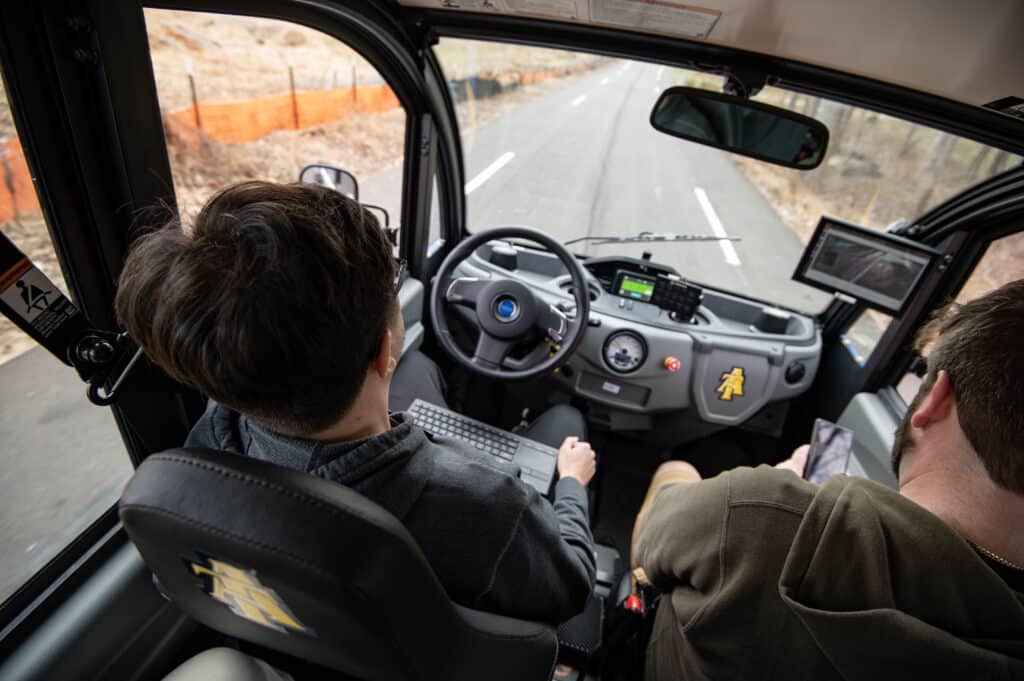
He also told Automoblog that the collaboration between the department and the university is part of a larger effort to prepare for future transportation development.
“NCDOT is evaluating how autonomous vehicles can best be used by riders with different needs and in different environments,” he said. “Initiatives include not only support for N.C. A&T’s CAV test bed and pilot, but also partnerships with communities across the state to showcase autonomous shuttle technology.”
The First Aggie Autopilot Program Could Launch This Year
The public may get a chance to experience the work of the N.C. A&T researchers in the near future. Karimoddini and others say that Aggie Auto intends to launch a public pilot program as early as fall 2023.
“We are now extensively testing the vehicles in our AV test track to get prepared for the next milestone, which is bringing the vehicles to the public roads,” he said.
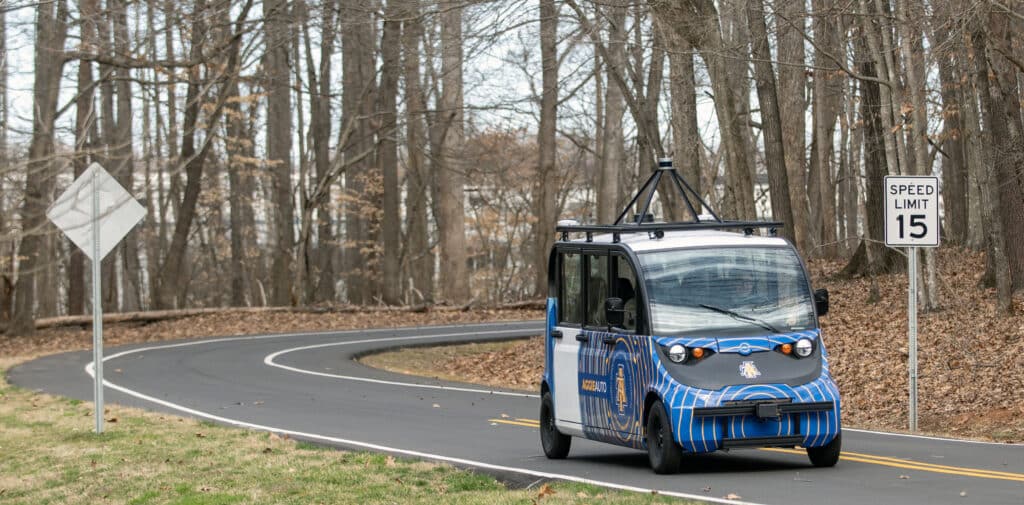
The pilot will have the support of both city and state governments throughout the process, according to Kritzer.
“The A&T researchers are planning a pilot project in coordination with the city of Greensboro and NCDOT to test their autonomous shuttles in a service between the university and downtown Greensboro,” he says. “The vehicles will be deployed on a route with mixed traffic shared with other transit services.”
Karimoddini says the launch will be a big moment for the already-decorated research program.
“We are so proud to have been given this opportunity to serve our local community,” he said. “We are excited to have Greensboro as one of the prominent cities in the nation to take this remarkable step toward testing the deployment of autonomous vehicles in its public transportation system.”

